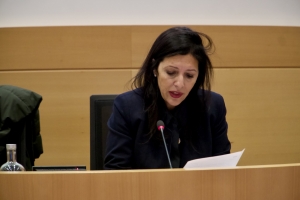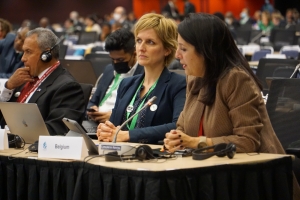PR | Khattabi wants legislation to ban Belgian exports of highly harmful pesticides.
On this International Day of No Pesticide Use, which commemorates one of the world's biggest industrial disasters in Bhopal, India, in which thousands of people were killed due to a gas leak from a pesticide factory, Federal Minister of the Environment, Zakia Khattabi, announces a draft royal decree to ban the export of hazardous pesticides made and delivered by Belgium to countries in the south, but prohibited in Europe. The text, ratified last week by the Inter-ministerial Conference on the Environment (CIE), is now submitted to the European Commission for advice before being sent to the government.
Belgium is one of the EU countries that export, outside the European Union, the highest number of chemical products banned in the European Union because of their impact on health and the environment. Although the EU prohibits the marketing of these products, production and exportation are not forbidden. For example, in 2018, the European Union exported nearly 81,000 tonnes of very harmful pesticides.
“This situation, besides being ethically and morally unbearable, leads to an imbalance of the market with unfair competition from third countries who can use certain chemicals. There is also a boomerang effect at the expense of the European consumer, who finds imported food in his or her plate, that has been treated with these harmful exported substances. This is for instance the case with ethylene oxide, which is banned on European soil and that we end up ingesting in the sesame we import from India." says Zakia Khattabi.
The order she brings forward rests on the jurisdiction of the federal government to establish product standards that encourage sustainable production and consumption patterns and the protection of the environment, health and workers.
"If these products are banned for use in Europe, it is inconceivable that we should continue to export them outside our borders. These dangerous pesticides cause severe damage to human health (from those who handle them, but also consumers and farmers), as well as to environmental health (water and soil pollution, biodiversity loss, etc.). By banning these exports, we practice a policy against double standards, and we set ourselves in line with a dynamic of protection, as well as with social and environmental justice" concludes Zakia Khattabi.


